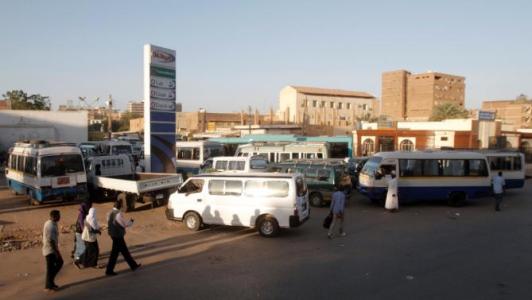Sudanese government lifts subsidies on three oil products
January 26, 2016 (KHARTOUM) – Sudanese government Tuesday has lifted cooking gas, fuel oil and jet fuel subsidies by ending its monopoly over the importing and pricing of the three products.

Sudan’s finance ministry announced the government has ended its monopoly over the three products and allowed the private sector to import and distribute them, saying all administrative constraints, taxes, and tariffs on the products are lifted and private sector companies are now allowed to use all payment methods.
Finance minister Badr al-Din Mahmoud said the government decision to end monopoly over the three products was aimed at securing the needs of consumers and productive sectors and to allow the private sector to provide and distribute the commodities without restrictions.
He pointed that the lift of subsidies came at the right time as global oil prices slide, saying the decision to end monopoly over the cooking gas was intended to remove price distortion and ensure the commodity provision.
It is noteworthy that the removal of the cooking gas subsidy led to a 300% rise in its price, making one kilogram of cooking gas worth six Sudanese pounds (SDG) up from two pounds previously.
Meanwhile, the speaker of the Sudanese parliament Ibrahim Ahmed Omer refrained from commenting on the government decision to raise the price of the cooking gas, saying he would first talk to the concerned executive bodies.
For her part, the deputy parliament speaker Badria Sulieman said the ministry of finance hasn’t yet informed the National Assembly of the decision to end government monopoly over the three products.
The head of the parliamentary subcommittee on energy Hayat al-Mahi also declined to comment on the decision before she receives an official notification from the government.
However, she said that articles (109) and (113) of the constitution gives the president of the republic the right to increase the fees for the public interest, adding the constitution also allows the minister of finance to increase certain fees after approving it in the parliament.
The economic committee of the national dialogue conference, for its part, demanded the concerned bodies to reconsider the decision to increase the prices of cooking gas, describing it as unjustified.
Member of the committee Yasir al-Gimiabi said the cooking gas is considered a strategic and political commodity, saying any increase in its price would impact prices of other consumer goods and in particular the bread price.
He said the national dialogue seeks to lower the prices of goods, stressing the increase in cooking gas price would negatively impact on the livelihoods of the citizens especially the low income people.
Sudan’s economy was hit hard since the southern part of the country declared independence in July 2011, taking with it about 75% of the country’s oil output.
The Sudanese pound has 100% of its value since South Sudan’s secession, pushing inflation rates to record levels given that the East African nation imports most of its food.
It is worth to mention that the government decision to lift fuel subsidies in September 2013 prompted deadly demonstrations in several Sudanese states leading to the killing of over 200 people.
